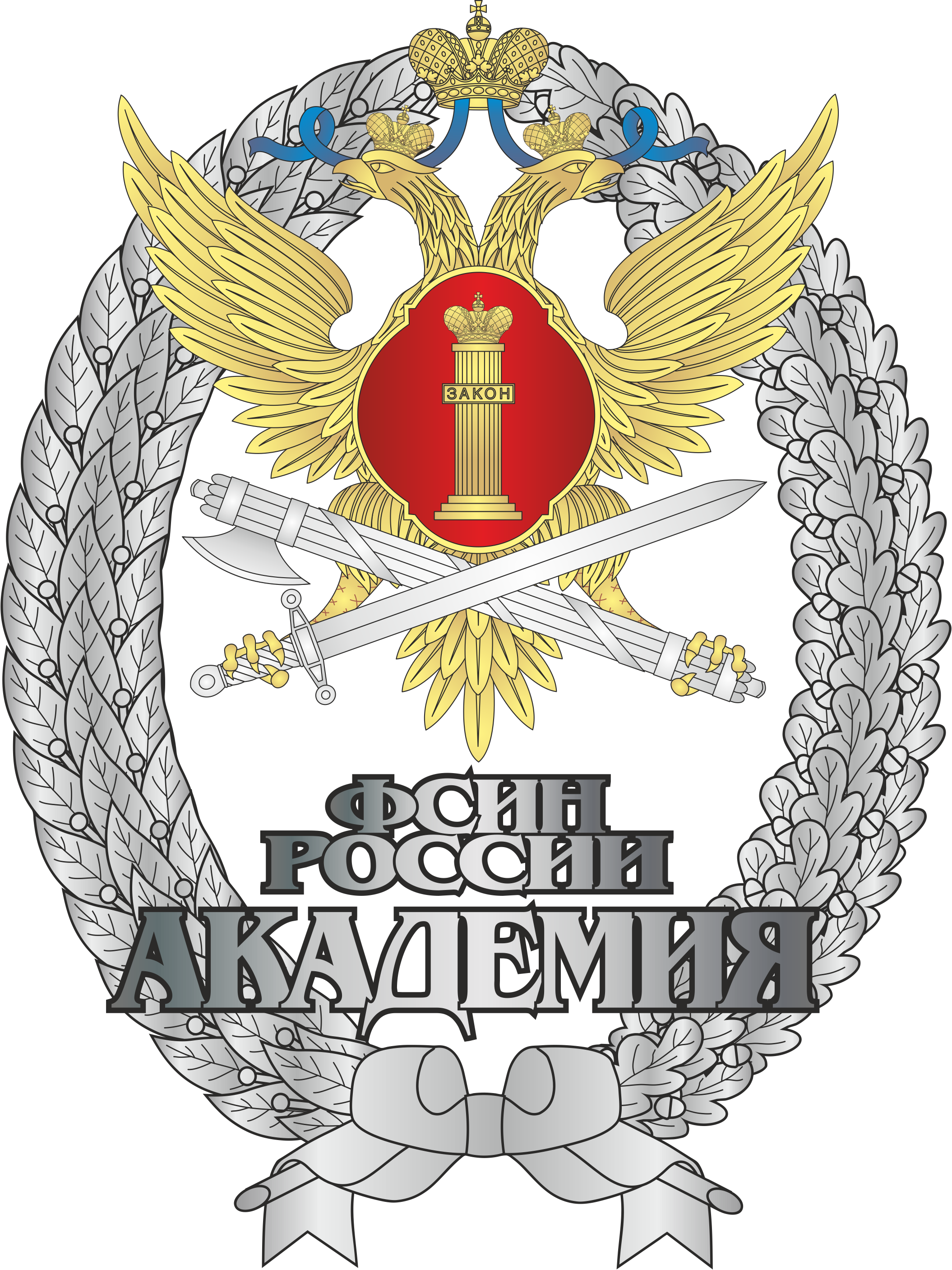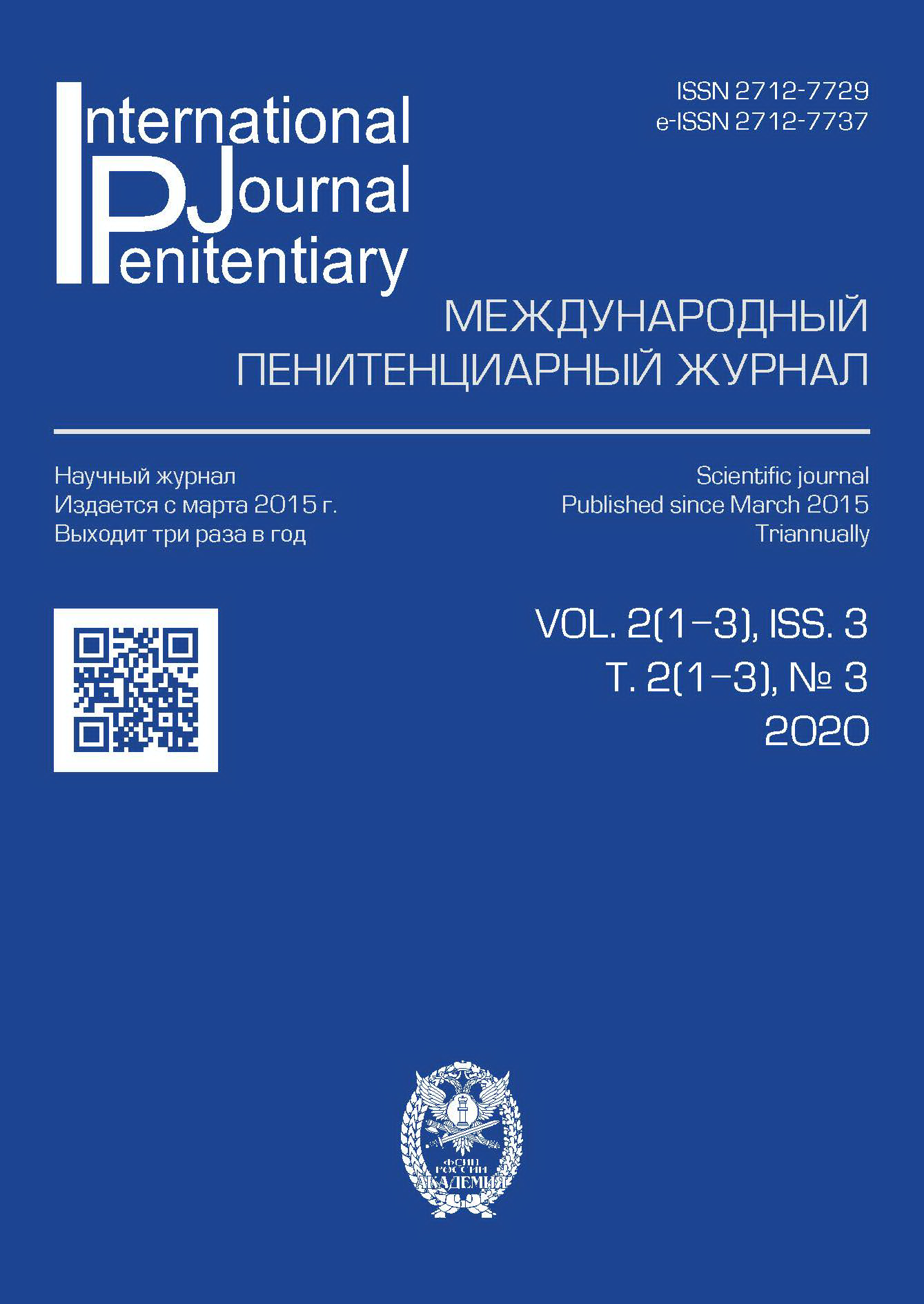Minsk, Belarus
CSCSTI 10.83
The article is devoted to the issues of classification of persons sentenced to imprisonment. Attention is drawn to the fact that the achievement of criminal responsibility goals largely depends on a clear division of convicts, depending on the criteria established by law, into homogeneous groups with subsequent differentiation and individualization of correctional and educational impact. As a result of the research, the author came to the following conclusions. In order to efficiently and effectively organize the process of correctional influence on convicts, it is rational to divide them into such categories, in relation to which the main means of correction provided for by law (established procedure for execution and serving of sentences, socially useful work, educational work, education of convicted persons, and social impact) could be applied in different volumes and with different degrees of intensity in order to ensure the achievement of the goals of punishment. Thus, differentiated application of correctional measures to convicts is possible only if they are correctly divided into homogeneous groups. Classification of persons sentenced to deprivation of liberty is of great practical importance for organizing the process of their correction and achieving criminal responsibility goals. It provides isolation from each other of various categories of convicts, thereby preventing the possibility of negative influence of more dangerous criminals on less dangerous criminals, and suggests the possibility of strengthening security and supervision, as well as the correctional and educational impact of punishment against dangerous criminals, while reducing the legal restrictions for convicts who do not pose a great public danger.
criminal liability, punishment, convicted person, classification, imprisonment
1. Kiyko, N. V. 2015, ‘To the question of the purposes of criminal liability in the appointment and execution of imprisonment’, in II International penitentiary forum “Crime, punishment, correction” (on the 60th anniversary of the adoption of the Standard Minimum Rules for the treatment of prisoners and the 30th anniversary of the adoption of the Standard Minimum Rules for the administration of juvenile justice): collection of abstracts of speeches and reports of participants (Ryazan, November 25-26, 2015), in 8 vols, vol. 1, Materials of the plenary session, pp. 155-161, Academy of the FPS of Russia, Ryazan.
2. Kuznetsova, N. F. & Tyazhkova, I. M. (eds) 2002, Criminal law course, General part, vol. 2, The doctrine of punishment, Zertsalo-M, Moscow.
3. Zubkov, A. I. (ed.) 2006, Penal law of Russia: theory, legislation, international standards, domestic practice of the late XIX - early XXI century, 3rd end, Norma, Moscow.
4. Ozhegov, S. I. 1984, Dictionary of the Russian language, N. Yu. Shvedova (ed.), 16th edn, Russian language, Moscow.
5. Kornienko, G. A., Grishko, A. Ya. & Chorny, V. N. (eds) 2013, Penal law, Special part, 3rd end, Academy of the FPS of Russia, Ryazan.
6. Summary statistics on the activities of courts of general jurisdiction in the administration of justice for the 1st half of 2020 2020, viewed 1 September 2020, http://www.court.gov.by/ru/justice_rb/statistics.












